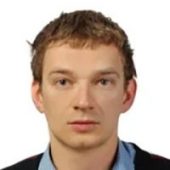Course Syllabus
|
|
 |
| Semester & Location: |
Spring 2024 - DIS Copenhagen |
| Type & Credits: |
Elective Course - 3 credits |
| Major Disciplines: |
Biology, Environmental Science, Sustainability |
| Research Mentor: |
Michael Hedegaard & Tomasz Blaszczyk (current students please use the Canvas Inbox) |
| Research Director: |
Susana Dietrich - research@dis.dk |
| Senior Research Manager: |
Jeanette Erbo Wern jwe@dis.dk |
| Academic Support: | |
| Time & Place: |
See "Course Summary" below |
Research Project Description
In this project, we use insects and beneficials (Biological Pest Control) to reduce or eliminate the need for chemical pesticides in agriculture and horticultural production. The project is anchored in a research collaboration between the Danish company EWH BioProduction in Tappernøje and universities in Denmark.
In this specific project we undertake a number of pilot tests on-site with growers and research institutions in Poland and analyze the data in Denmark. The pilot tests consist of releasing biological pest agents and then monitoring and gathering data on variables such as plant growth and pest development, as well as exogeneous parameters such as humidity, temperature, etc. Data is gathered by growers on-site and, as part of the project, we will develop technology to transfer and monitor data digitally. The DIS research project is conducted in Denmark using data transferred from growers in Poland.
The primary goal is to measure the effects and optimal use of biological insects. Parallel to this, we will test how technologies such as sensors, digitalization, and drones can be used to effectively monitor pest occurrences and optimize pest control. Based on the data gathered, we will develop calculations on the economic cost/benefit of using Biological Pest Control. Finally, we will assess the sustainability of Biological Pest Control and provide suggestions on an ESG score. As Research Assistant, you will have the opportunity to work with a project that spans fields from biology, engineering, sustainability, economics, and business. You will be working with both businesses, universities, and Polish growers. You will gain a deep insight into how to undertake pilot projects, gather data, learn about biological pest control, sustainability, environmental science, experience the specificities of Polish farming and society, and work closely with university researchers, business, and agriculture.
Learning Objectives
The primary objective is for you to experience the world of research and gain skills that will prepare you for any future career you choose to pursue. By the end of the term, you will grasp the complexities of the research project and have made your own contribution to the project. You will have learned to communicate ideas
and findings, both orally and in writing, to colleagues within your particular discipline, as well as peers from other disciplines.
Project-Specific Objectives Include:
Relevant literature search, data analysis including risk calculations, written discussion about the results of the data analysis and a summary report of the findings.
Research Mentors

Michael Hedegaard, M.Sc. (Economics (Cand. Oecon), University of Aarhus, 1993). Studied Economics and French in Denmark & France while training at the European Commission. Worked for Eksport Kredit Fonden “EKF”, Denmark’s Export Credit Agency and also worked for a few international investment fund agencies. Lived in Côte d’Ivoire for two years and founded an international business consulting company and bio-tech company in Kenya. Currently, serves as an external lecturer at Copenhagen Business School and Associate Professor at DTU - Technical University of Denmark - focusing on how to create sustainable business out of technology. Part-time faculty with DIS since 2012.

Tomasz Blaszczyk is working at Zealand - University of Applied Science, where he is deeply engrossed in pioneering research in the realms of modern embedded systems, radio communication and cutting-edge IoT solutions to tackle the multifaceted challenges of the modern era. This encompasses areas ranging from sustainable food production, agriculture, and bee disease control, to the intricate domain of biological pest control, and numerous others. He received a bachelor's degree in Electrical Engineering from Copenhagen University (Denmark). In 2006, Tomasz earned a Master of Science in Engineering from Silesian University of Technology (Poland). Since earning his graduate degree, Tomasz has worked on circuit design & instrument development for industrial applications. He has worked at the Technical University of Denmark as a Associate Professor and Researcher - focusing on the research and teaching activities since 2009. He is also involved in research on smart sensors for atmospheric physics and meteorology. In 2015, Tomasz received funds for innovative project where he conducted research and development of instruments for near-space industry. Tomasz is the inventor of new flow sensor and has strong interest in smart sensor systems, radio communication, embedded applications, intelligent signal processing & control with low power profiles for multidisciplinary approaches. Tomasz is handling IoT devices, wireless network and smart technology development related work in the CLAFIS project. With DIS Since 2022.
Roles and Responsibilities of the Research Assistant
You are expected to spend a minimum of 10 hours per week on the project. The workload
may vary over the semester. If you are travelling to do field research in a different
location, additional time may be required.
As research assistant, you will engage in some or all of the following:
1. Participate in weekly meetings with your research mentor at a time set collectively at the beginning of the term.
2. Participate in a research orientation at the beginning of the semester
3. Participate in two research workshops during the semester.
4. Write an assessment of your own strengths and weaknesses in the research
process at the beginning of the semester. Revisit at the end of the semester as part of an evaluation of your own participation in, and learning from, the research project.
5. Keep a research journal and submit it in person or via email every week (or another specified interval) to your research mentor, describing the activities of the week, and outlining goals for the following week.
6. Conduct literature reviews.
7. Participate in carrying out the research project. This may include: familiarizing yourself with core concepts, prototyping, design testing, preliminary user studies. The specific responsibilities may vary depending on how the project progresses. Be prepared to contribute to tasks that may come up
during the semester. Research processes are not always predictable.
8. Present the relevance of the research and/or findings to peer(s) from other
disciplines at the End of Semester Showcase.
9. Make a final oral and/or written presentation of the research you are involved in, depending on what is agreed with your research mentor.
Readings
The readings will be agreed upon with the Research Mentor at the beginning of the semester -
the exact content will differ depending on your background. You will receive guidance
concerning the basics of relevant concepts, study designs, methods of analysis, etc.
Evaluation and Grading
All research assistants are assessed on their participation, weekly status reports to the research mentor, self-evaluation and presentation to peers from other disciplines. Additional evaluation and grading depends on the individual research project and project phase and is outlined by the research mentor. It may include literature reviews, a poster presentation for an expert panel, a working paper, etc.
|
Participation* 10% of grade comprises attendance & active participation in the research orientation, research workshops, and DIS Festival |
20% |
|
litterature review |
5% |
|
Research Project Outline |
10% |
|
Presentation at DIS Festival |
10% |
|
Final Paper |
55% |
|
TOTAL |
100% |
Research Orientation & Workshops
Days and times are available in the Course Summary, below.
Field Research (if applicable)
Some research projects include field research. Expenses related to fieldwork will be
covered by a DIS travel grant. The fieldwork will be planned with the research
mentor at the beginning of the semester.
Approach to Mentoring
All DIS research mentors have been trained in mentoring students but their approach to
mentoring may differ. Mentoring is about engaging at a different - and often deeper -
level than what is typical in the class room. However, mentoring also comes with some
degree of ambiguity, which is important for you to expect. The research
mentor will work closely with you throughout the semester but part of the training is also
for you to use your own judgement, to make assessments and decisions. As part of
planning your tasks and responsibilities for the semester together, the research
mentor will talk to you about her/his approach to mentoring.
Expectations of the Research Assistant
The specific expectations of the individual research assistant are agreed upon at the
beginning of the semester. In general, a research assistant is expected to take initiative,
take ownership of the project and work independently. You must also be prepared for
meetings and be willing to part take in relevant discussions. In cases where more
research assistants are involved in the same project, you will be expected to engage in
some teamwork. Carrying out a research project is not a straightforward and
predictable process. This is part of what makes it exciting. It also means that
communication is crucial. You are expected to take responsibility for communicating
about problems or issues that arise.
Data
The data sets are register based, on individual level, anonymized or pseudo-anonymized. If needed, the format can be adapted to the any prior knowledge of software the student might have. The project is approved by the Danish Data Protection Agency 2016-41-4961, which is the approval needed for purely register based research in Denmark.
Disability and Resource Statement
Any student who has a need for accommodation based on the impact of a disability should contact Academic Support in Copenhagen (acadsupp@dis.dk) or in Stockholm (academics@disstockholm.se), depending on the project location. In order to receive accommodations, students should inform the instructor of approved DIS accommodations within the first two weeks of classes.
Academic Regulations
Please make sure to read the Academic Regulations. on the DIS website. There you will find regulations on:
Course Summary:
| Date | Details | Due |
|---|---|---|